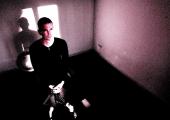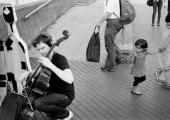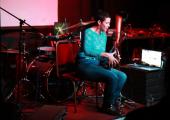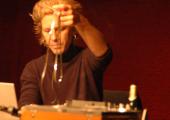CD: Aisha Orazbayeva - The Hand Gallery
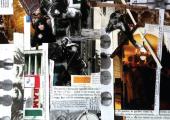
Elvis, Reich and John Cale - natural bedfellows?
It seems that the gradual leakage of avant-garde-post-classical-call-it-what-you-will music from the rarefied environment of concert halls and into the spaces traditionally inhabited by alternative and club music is now inexorable. And violinist Aisha Orazbayeva is one of the instrumental (pun intended) figures in this move from trickle to flood.


